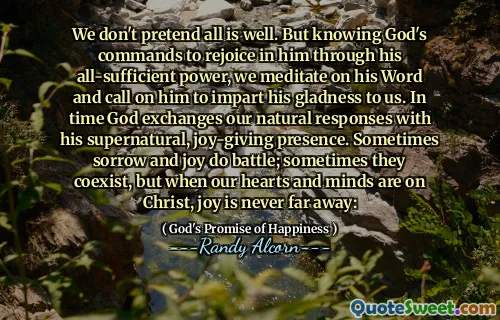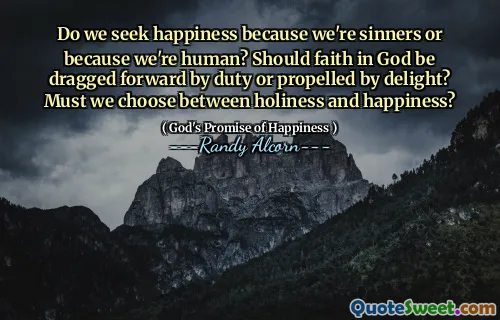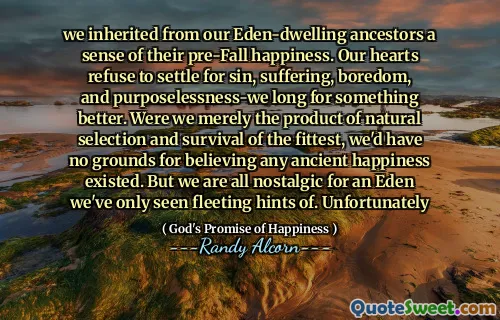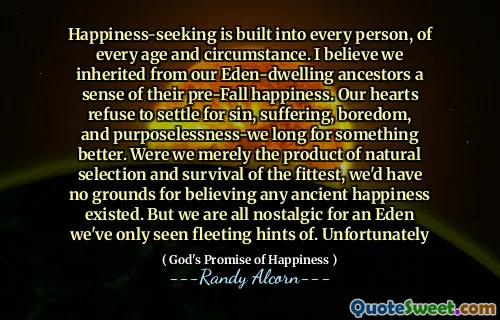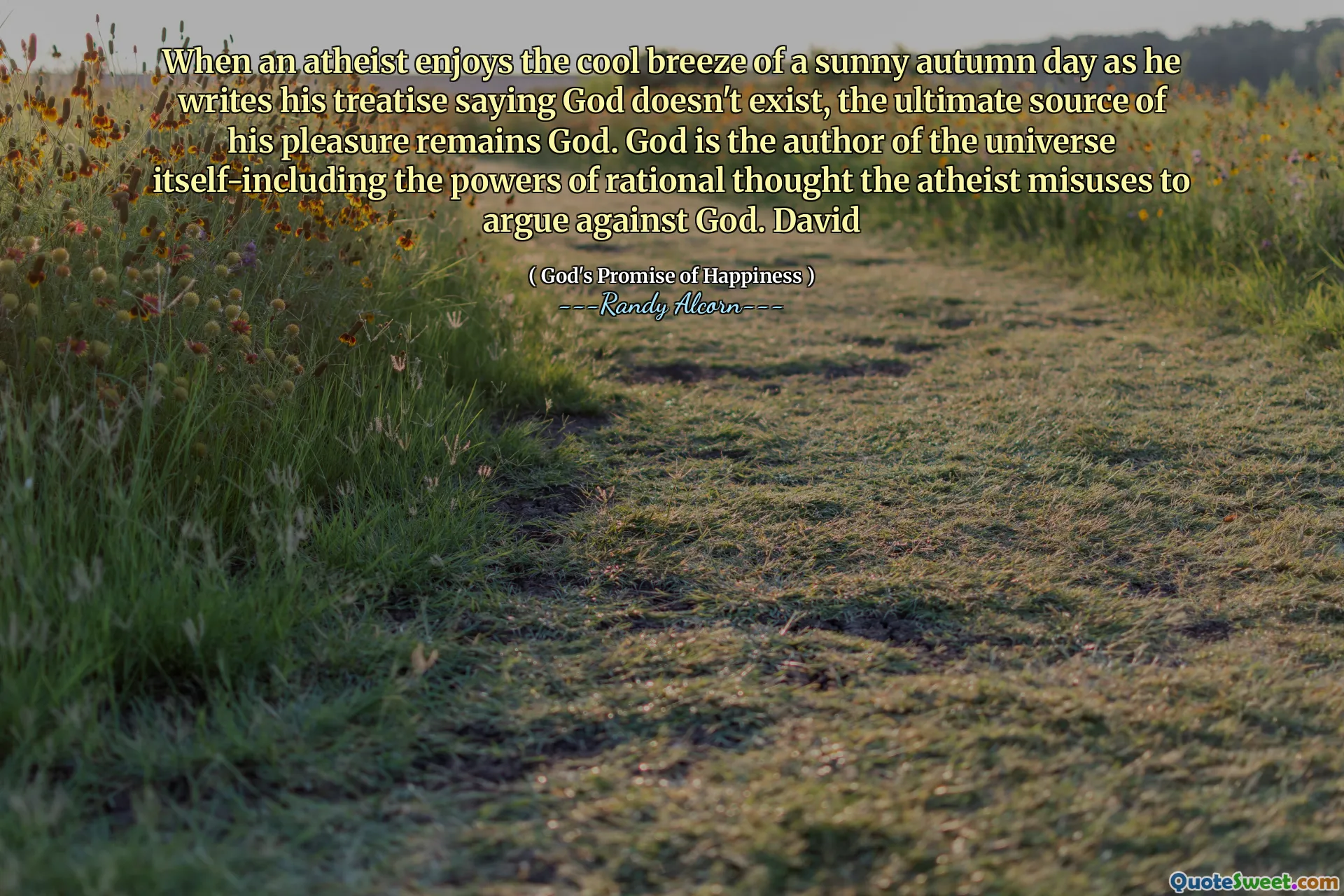
When an atheist enjoys the cool breeze of a sunny autumn day as he writes his treatise saying God doesn't exist, the ultimate source of his pleasure remains God. God is the author of the universe itself-including the powers of rational thought the atheist misuses to argue against God. David
The quote highlights the paradox of an atheist enjoying life while simultaneously rejecting the existence of God. It points out that even in their writing and reasoning against God, atheists unknowingly rely on the very abilities and experiences that originate from God as the creator of the universe. This enjoyment is intertwined with the essence of God, reflecting a deeper connection to the divine, even when one denies it.
Randy Alcorn, in his book "God's Promise of Happiness," makes a strong argument about the intrinsic link between human experiences and the divine. He suggests that the rationality and beauty that atheists appreciate in life are ultimately derived from a higher source, emphasizing that the very faculties they use to argue against God are gifts from God. Thus, the act of rejecting God does not eliminate the divine influence present in their lives.

